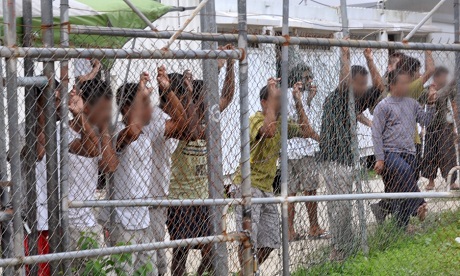Papua New Guinea’s (PNG’s) bishops are urging the government to do more to help resettle the country’s refugees and asylum seekers.
Besides pushing for a definitive end to the detention of refugees on Manus Island, the bishops are also highlighting the plight of various groups in the country who have not gained refugee status.
In a recent Church-led public forum in Port Moresby, the difficulties and uncertain futures faced by asylum seekers and stateless people with permissive residency were discussed.
The president of PNG’s Catholic Professionals Society, Paul Harricknen, says both PNG and Australian governments must stop holding 600 refugees on Manus as it is unlawful.
In 2016, PNG’s Supreme Court ruled that holding men on Manus against their will was unconstitutional. PNG’s government claims the men are no longer detained on Manus, but Harricknen says the men have no freedom, are monitored and are kept against their will.
“Most of them do not want to stay in PNG because in the first place PNG was not their destination.
“And for them to be brought here and detained and continue to be detained, whether you keep them on Manus, whether the detention centre is closed, whether you keep them in a hotel and give them money and expect them to run around, that’s still detention.”
The Church has written to PNG’s government about the medical condition of the refugees on Manus, calling for a dignified ending to Australia’s indefinite detention of the men in PNG.
Harricknen says the government indicated it is outside its power to do anything about it.
The Church is seeking support from the International Organization for Migration and the Office of the United Nations High Commissioner for Refugees to push the governments to end the plight of the men on Manus.
Comments from the refugees who attended the forum spoke of the difficulties and uncertain futures faced by asylum seekers and stateless people with permissive residency.
While one refugee pointed out his and other refugees’ indebtedness to PNG, others spoke of hardship.
“It’s also very hard, like when I go out sometimes some people they call ‘asylum seeker’ or ‘refugee’. It still make hard. It’s not easy. We need justice. My other friends they got refugee certificates, so I’m the rejected one and I don’t know what will happen, and I stay six years.”
Source
- Radio NZ
- Image: aljazeera.com
